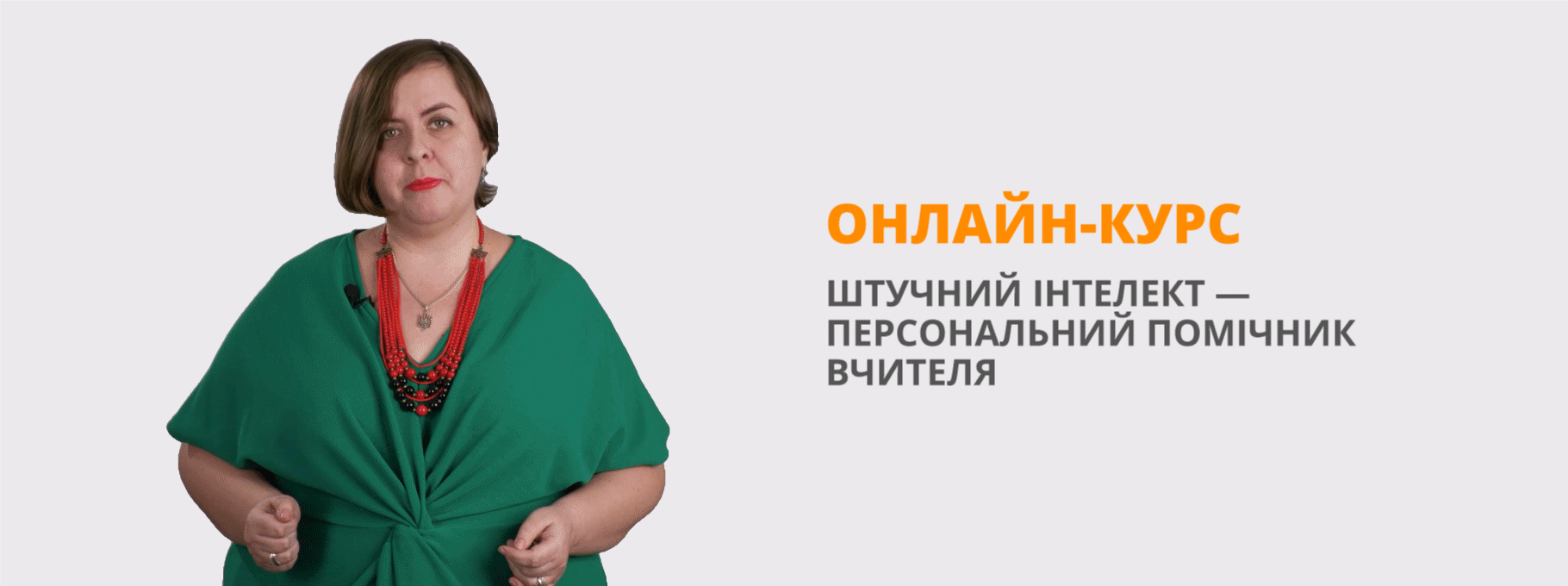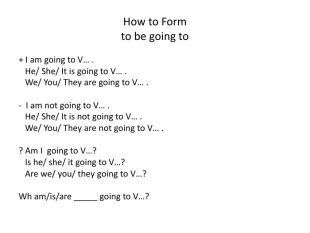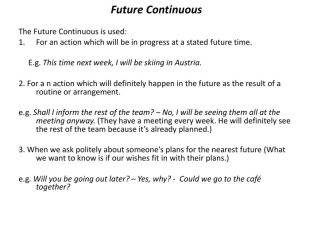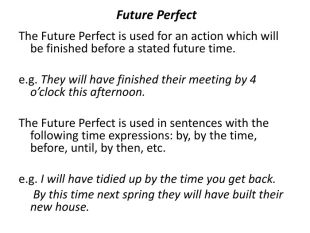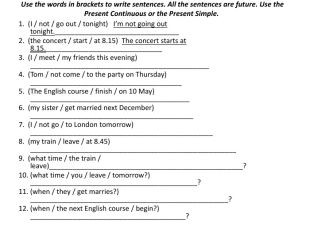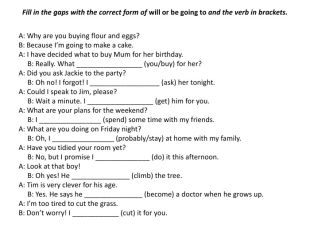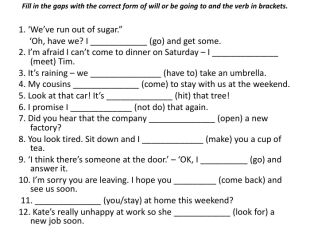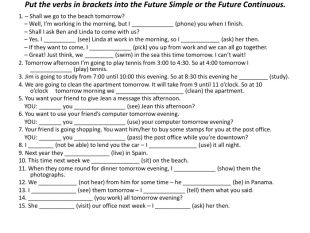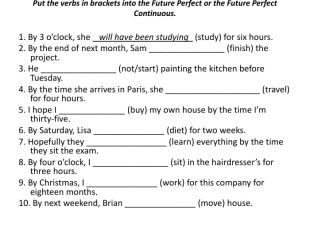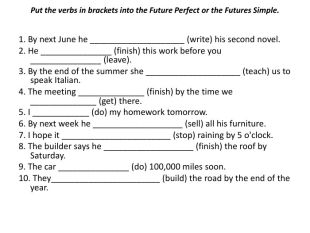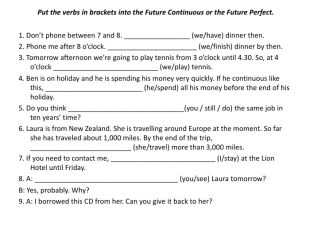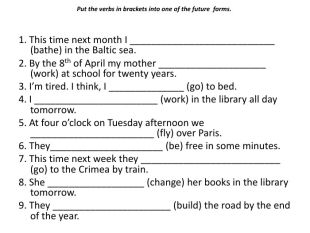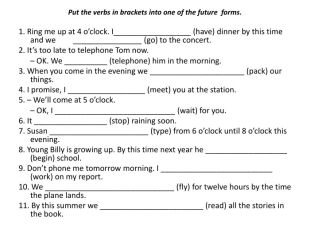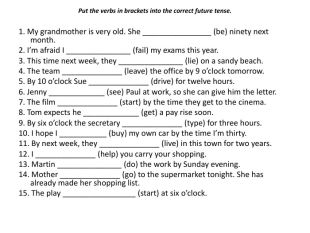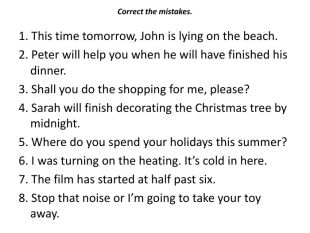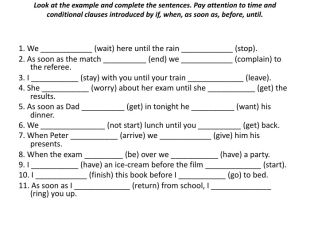Граматичний матеріал для підготовки учнів 10-11 класів до ЗНО з теми "Future Tenses".






























Future Simple. The Future Simple is used:1. In predictions about the future usually with the verbs think, expect, the expressions be sure, be afraid, and the adverbs perhaps, certainly, probably, etc. His parents think he will become an artist one day.2. For on-the-spot decisions and offers. I will take this jacket. – Since, it’s your birthday, I will pay for lunch.3. For actions/ events/ situations which will definitely happen in the future and which we cannot control. Jill will be 2 years old next month. (We cannot control this future event; it will definitely happen.)4. For promises (usually with the verbs promise, swear, guarantee), for threats, for warnings, for requests, for hopes (usually with I hope.)I hope pollution levels will drop soon. (hope)Factories must stop polluting the air or else we won’t be able the breathe. (warning)
Future Simple. We use WILL/ SHALLWill you…? to make a request; that is, to ask someone to do something for us.e.g. Will you open the door for me, please?2. Won’t to show that someone is unwilling or refuses to do something.e.g. I have talked to Sue about her decision to leave, but she won’t listen. (=She refuses to listen.)3. Shall I/we…? To make an offer.e.g. Shall I give you a hand with those bags? (Do you want me to give you a hand with those bags?)b) To make a suggestion.e.g. Shall we wait until the rain stops? (Why don’t we wait until the rain stops?)c) To ask for suggestions or instructions.e.g. What shall I do with all these letters? – Put them on my desk. (What do you want me to do with all these letters?)Note: The Future Simple is not used after while, after, before, until, as soon as, if, by the time, as, providing that. We use Present Simple instead.e.g. I will call you as soon as I get home. He will give you the book after he has finished reading it.
To Be Going to. Be going to is used: For plans, intentions or ambitions we have for the future. I am going to employ more staff. I’m going to expand my company.2. In predictions when there is evidence that something will happen in the nearest future. Look at him! He is going to win the race. (there is evidence that he is ahead of the other runners.)Note: We use WILL when we make a prediction based on what we think, believe or imagine.e.g. In the year 2050 there will be colonies on Mars. We use BE GOING TO when we make a prediction based on what we see (evidence) or know.e.g. Look! The acrobat is going to walk along the tightrope.
How to Formto be going to+ I am going to V… . He/ She/ It is going to V… . We/ You/ They are going to V… .- I am not going to V… . He/ She/ It is not going to V… . We/ You/ They are not going to V… .? Am I going to V…? Is he/ she/ it going to V…? Are we/ you/ they going to V…?Wh am/is/are _____ going to V…?
Present Continuous ___ am/is/are Ving. The Present Continuous is used for fixed arrangements in the nearest future.e.g. He is leaving for Amsterdam in an hour. (Everything has been arranged for this trip. He is at the airport now.)We’ve got 2 tickets for the concert. We are going to the concert tonight. They have bought all the ingredients. They are cooking pizza for dinner.
Present Simple I/We/You/They+V He/She/It+Vs. The Present Simple is used with a future meaning when we refer to programmes, schedules or timetables (trains, business, etc.)e.g. The film starts in ten minutes. The train arrives at 3 p.m. tomorrow. The Future Simple and be going to are used with the following expressions: Tomorrow, the day after tomorrow,, next week/ month/year, tonight, soon, in a week/ month/year, etc.
Future Continuous. The Future Continuous is used: For an action which will be in progress at a stated future time. E.g. This time next week, I will be skiing in Austria.2. For a n action which will definitely happen in the future as the result of a routine or arrangement.e.g. Shall I inform the rest of the team? – No, I will be seeing them all at the meeting anyway. (They have a meeting every week. He will definitely see the rest of the team because it’s already planned.)3. When we ask politely about someone’s plans for the nearest future (What we want to know is if our wishes fit in with their plans.)e.g. Will you be going out later? – Yes, why? - Could we go to the café together?
Future Perfect. The Future Perfect is used for an action which will be finished before a stated future time.e.g. They will have finished their meeting by 4 o’clock this afternoon. The Future Perfect is used in sentences with the following time expressions: by, by the time, before, until, by then, etc.e.g. I will have tidied up by the time you get back. By this time next spring they will have built their new house.
Future Perfect Continuous. The Future Perfect Continuous is used to emphasise the duration of an action up to a certain time in the future.e.g. By the time Rick retires, he will have been working for the same company for 30 years. By the time she finishes work, we will have been waiting for more than an hour. The Future Perfect Continuous is used with: by, for
Use the words in brackets to write sentences. All the sentences are future. Use the Present Continuous or the Present Simple. 1. (I / not / go out / tonight) I’m not going out tonight.________________________________2. (the concert / start / at 8.15) The concert starts at 8.15.______________________________3. (I / meet / my friends this evening) ______________________________________________4. (Tom / not come / to the party on Thursday) _______________________________________5. (The English course / finish / on 10 May) _________________________________________6. (my sister / get married next December) __________________________________________7. (I / not go / to London tomorrow) _______________________________________________8. (my train / leave / at 8.45) _____________________________________________________9. (what time / the train / leave)__________________________________________________?10. (what time / you / leave / tomorrow?) ___________________________________________?11. (when / they / get marries?) ___________________________________________________?12. (when / the next English course / begin?) ________________________________________?
Fill in the gaps with the correct form of will or be going to and the verb in brackets. A: Why are you buying flour and eggs? B: Because I’m going to make a cake. A: I have decided what to buy Mum for her birthday. B: Really. What _________________ (you/buy) for her?A: Did you ask Jackie to the party? B: Oh no! I forgot! I __________________ (ask) her tonight. A: Could I speak to Jim, please? B: Wait a minute. I _________________ (get) him for you. A: What are your plans for the weekend? B: I ________________ (spend) some time with my friends. A: What are you doing on Friday night? B: Oh, I ________________ (probably/stay) at home with my family. A: Have you tidied your room yet? B: No, but I promise I ______________ (do) it this afternoon. A: Look at that boy! B: Oh yes! He _______________ (climb) the tree. A: Tim is very clever for his age. B: Yes. He says he _______________ (become) a doctor when he grows up. A: I’m too tired to cut the grass. B: Don’t worry! I ____________ (cut) it for you.
Fill in the gaps with the correct form of will or be going to and the verb in brackets.1. ‘We’ve run out of sugar.” ‘Oh, have we? I ____________ (go) and get some.2. I’m afraid I can’t come to dinner on Saturday – I ______________ (meet) Tim.3. It’s raining – we _______________ (have to) take an umbrella.4. My cousins ______________ (come) to stay with us at the weekend.5. Look at that car! It’s ______________ (hit) that tree!6. I promise I _____________ (not do) that again.7. Did you hear that the company ______________ (open) a new factory?8. You look tired. Sit down and I _____________ (make) you a cup of tea.9. ‘I think there’s someone at the door.’ – ‘OK, I __________ (go) and answer it.10. I’m sorry you are leaving. I hope you _________ (come back) and see us soon. 11. ______________ (you/stay) at home this weekend?12. Kate’s really unhappy at work so she ____________ (look for) a new job soon.
Put the verbs in brackets into the Present Simple or the Future Simple.1. A: I’m going to the gym tonight. B: Well, while you __________ (be) there, I will do the shopping.2. A: ___________ (you/call) me when you _____________ (get) home? B: Yes, of course.3. A: As soon as John _____________ (come) in, tell him to come to my office. B: Certainly, sir.4. A: Are you going to visit Aunt Mabel this afternoon? B: Yes, I __________ (visit) her before I ___________ (do) the shopping.5. A: Is George going to have dinner with us? B: No, by the time he _____________ (get) home it ____________ (be) very late.6. A: When _________ (you/pay) the rent? B: When I __________ (get) my pay cheque.7. A: What are your plans for the future? B: I want to go to university after I ____________ (finish) school.8. A: If you ___________ (pay) for dinner, I __________ (pay) for the theatre. B: Okay, that’s a good idea.9. Before you ___________ (leave), don’t forget to shut the windows.10. When you _________ (see) Brian again, you won’t recognize him.11. We __________ (not/start) dinner until Jack __________ (arrive).12. Please, don’t touch anything before the police _________ (come).13. As soon as I _______ (get up) in the morning, I ________ (buy) the newspaper to look at the employment ads.14. Before I __________ (go) on an interview, I ___________ (improve) my computer skills.15. I don’t know when she __________ (come back).
Put the verbs in brackets into the Future Simple, the Present Simple or the Present Continuous.1. A: I am seeing Roger (see) at seven o’clock tonight. B: Really? I thought he was out of town.2. A: ____________ (you/do) anything on Friday morning? B: No, I’m free.3. A: I ____________ (go) to the cinema. There’s a new film on. Do you want to come with me? B: What time ____________ (the film/start)?4. A: Helen ______________ (have) a party the day after tomorrow ___________ (you/go)? B: As a matter of fact, I haven’t been invited.5. A: The new exhibition ____________ (open) on April 3rd and ____________ (finish) on May 31st. B: I know. I ____________ (go) on the first day.6. A: Aunt Maggie ____________ (come) to visit us tomorrow. B: I know. What time _____________ (she/arrive)?7. A: Excuse me, what time ______________ (the train/leave)? B: At half past three, madam.8. A: Jim Lucky ______________ (give) a concert at the Olympic Stadium next week. B: I know. I _______________ (want) to get a ticket.9. A: I’m really thirsty. B: I _____________ (get) you a glass of water.10. A: Are you looking forward to your party? B: Yes. I hope everyone _____________ (enjoy) it.
Put the verbs in brackets into the Future Simple or the Future Continuous.1. – Shall we go to the beach tomorrow? – Well, I’m working in the morning, but I _____________ (phone) you when I finish. – Shall I ask Ben and Linda to come with us? – Yes. I __________ (see) Linda at work in the morning, so I ____________ (ask) her then. – If they want to come, I _____________ (pick) you up from work and we can all go together. – Great! Just think, we _________ (swim) in the sea this time tomorrow. I can’t wait!2. Tomorrow afternoon I’m going to play tennis from 3:00 to 4:30. So at 4:00 tomorrow I _____________ (play) tennis.3. Jim is going to study from 7:00 until 10:00 this evening. So at 8:30 this evening he _________ (study).4. We are going to clean the apartment tomorrow. It will take from 9 until 11 o’clock. So at 10 o’clock tomorrow morning we _____________________ (clean) the apartment.5. You want your friend to give Jean a message this afternoon. YOU: _______ you ________________ (see) Jean this afternoon?6. You want to use your friend’s computer tomorrow evening. YOU: _______ you ________________ (use) your computer tomorrow evening? 7. Your friend is going shopping. You want him/her to buy some stamps for you at the post office. YOU: _______ you ________________ (pass) the post office while you’re downtown?8. I ________ (not be able) to lend you the car – I _______________ (use) it all night.9. Next year they ______________ (live) in Spain.10. This time next week we _______________ (sit) on the beach.11. When they come round for dinner tomorrow evening, I _____________ (show) them the photographs.12. We ____________ (not hear) from him for some time – he _______________ (be) in Panama.13. I ______________ (see) them tomorrow – I _____________ (tell) them what you said.14. ____________________ (you work) all tomorrow evening?15. She ___________ (visit) our office next week – I ___________ (ask) her then.
Put the verbs in brackets into the Future Continuous or the Future Simple.1. It’s nearly autumn, soon the leaves ___________________ (change) colour.2. At four o’clock on Tuesday afternoon we ____________________ (fly) over Paris.3. Don’t phone them now: they ____________________ (have) dinner.4. I don’t like that man and I ________________________ (not help) him.5. I __________________ (work) at home tomorrow. You can call me there.6. She ______________________ (stay) in Leeds all weekend.7. Your face is dirty. – All right. I ____________________ (wash) it.8. What you ___________________ (do) early on Monday night?9. Will you have lunch with me on the 24th? – I’d love to, but I’m afraid I ___________________ (do) my exam then.10. Let’s hurry up! It_______________ (start) raining in a minute.11. It’s five o’clock and my girlfriend is waiting for me outside. I’m afraid she ________ (not wait) long.12. You ___________________ (travel) in summer again? – Yes, we _______________ (go) to Croatia.13. During the performance the police ____________________ (try) to keep order.
Put the verbs in brackets into the Future Perfect or the Future Perfect Continuous.1. By 3 o’clock, she will have been studying (study) for six hours.2. By the end of next month, Sam ________________ (finish) the project.3. He ________________ (not/start) painting the kitchen before Tuesday.4. By the time she arrives in Paris, she ____________________ (travel) for four hours.5. I hope I ______________ (buy) my own house by the time I’m thirty-five.6. By Saturday, Lisa _______________ (diet) for two weeks.7. Hopefully they _________________ (learn) everything by the time they sit the exam.8. By four o’clock, I ________________ (sit) in the hairdresser’s for three hours.9. By Christmas, I _______________ (work) for this company for eighteen months.10. By next weekend, Brian _______________ (move) house.
Put the verbs in brackets into the Future Perfect or the Future Continuous.1. I can’t come shopping on Saturday morning because I ____________ (work).2. Don’t phone me later than midnight because I ________________ (sleep) then.3. Come to my house at six o’clock. – _____________________ (you/finish) your homework by then?4. Have you made the preparations for the party? – Not yet, but I ______________ (finish) them by this evening.5. _______________ (you/go) to James’ party on Saturday night? – There’s a meeting tomorrow at 4 o’clock. I can’t go if it is that late. I _______________ (leave) by then.
Put the verbs in brackets into the Future Perfect or the Futures Simple.1. By next June he ____________________ (write) his second novel.2. He _______________ (finish) this work before you _______________ (leave).3. By the end of the summer she ____________________ (teach) us to speak Italian.4. The meeting ______________ (finish) by the time we ______________ (get) there.5. I ____________ (do) my homework tomorrow.6. By next week he ___________________ (sell) all his furniture.7. I hope it _______________________ (stop) raining by 5 o'clock.8. The builder says he ___________________ (finish) the roof by Saturday.9. The car _______________ (do) 100,000 miles soon.10. They_______________________ (build) the road by the end of the year.
Put the verbs in brackets into the Future Continuous or the Future Perfect.1. Don’t phone between 7 and 8. _________________ (we/have) dinner then.2. Phone me after 8 o’clock. _______________________ (we/finish) dinner by then.3. Tomorrow afternoon we’re going to play tennis from 3 o’clock until 4.30. So, at 4 o’clock ___________________________ (we/play) tennis.4. Ben is on holiday and he is spending his money very quickly. If he continuous like this, _________________________ (he/spend) all his money before the end of his holiday.5. Do you think ______________________________(you / still / do) the same job in ten years’ time?6. Laura is from New Zealand. She is travelling around Europe at the moment. So far she has traveled about 1,000 miles. By the end of the trip, __________________________ (she/travel) more than 3,000 miles.7. If you need to contact me, ___________________________ (I/stay) at the Lion Hotel until Friday.8. A: _____________________________________ (you/see) Laura tomorrow?B: Yes, probably. Why?9. A: I borrowed this CD from her. Can you give it back to her?
Put the verbs in brackets into one of the future forms.1. This time next month I ___________________________ (bathe) in the Baltic sea.2. By the 8th of April my mother ____________________ (work) at school for twenty years.3. I’m tired. I think, I ______________ (go) to bed.4. I _______________________ (work) in the library all day tomorrow.5. At four o’clock on Tuesday afternoon we _______________________ (fly) over Paris.6. They_____________________ (be) free in some minutes.7. This time next week they __________________________ (go) to the Crimea by train.8. She __________________ (change) her books in the library tomorrow.9. They ______________________ (build) the road by the end of the year.
Put the verbs in brackets into one of the future forms.1. Ring me up at 4 o’clock. I__________________ (have) dinner by this time and we ________________ (go) to the concert.2. It’s too late to telephone Tom now. – OK. We __________ (telephone) him in the morning.3. When you come in the evening we ______________________ (pack) our things.4. I promise, I __________________ (meet) you at the station.5. – We’ll come at 5 o’clock. – OK, I ____________________________ (wait) for you.6. It _________________ (stop) raining soon.7. Susan _______________________ (type) from 6 o’clock until 8 o’clock this evening.8. Young Billy is growing up. By this time next year he ___________________ (begin) school.9. Don’t phone me tomorrow morning. I __________________________ (work) on my report.10. We ______________________________ (fly) for twelve hours by the time the plane lands.11. By this summer we ________________________ (read) all the stories in the book.
Put the verbs in brackets into the correct future tense.1. My grandmother is very old. She ________________ (be) ninety next month.2. I’m afraid I _______________ (fail) my exams this year.3. This time next week, they _______________ (lie) on a sandy beach.4. The team ______________ (leave) the office by 9 o’clock tomorrow.5. By 10 o’clock Sue ______________ (drive) for twelve hours.6. Jenny _____________ (see) Paul at work, so she can give him the letter.7. The film ______________ (start) by the time they get to the cinema.8. Tom expects he _____________ (get) a pay rise soon.9. By six o’clock the secretary ______________ (type) for three hours.10. I hope I ___________ (buy) my own car by the time I’m thirty.11. By next week, they ______________ (live) in this town for two years.12. I ______________ (help) you carry your shopping.13. Martin _______________ (do) the work by Sunday evening.14. Mother ______________ (go) to the supermarket tonight. She has already made her shopping list.15. The play _________________ (start) at six o’clock.
Correct the mistakes.1. This time tomorrow, John is lying on the beach.2. Peter will help you when he will have finished his dinner.3. Shall you do the shopping for me, please?4. Sarah will finish decorating the Christmas tree by midnight.5. Where do you spend your holidays this summer?6. I was turning on the heating. It’s cold in here.7. The film has started at half past six.8. Stop that noise or I’m going to take your toy away.
Look at the example and complete the sentences. Pay attention to time and conditional clauses introduced by if, when, as soon as, before, until. 1. We ____________ (wait) here until the rain ____________ (stop).2. As soon as the match __________ (end) we ____________ (complain) to the referee.3. I ___________ (stay) with you until your train _____________ (leave).4. She ___________ (worry) about her exam until she ___________ (get) the results.5. As soon as Dad __________ (get) in tonight he __________ (want) his dinner.6. We _______________ (not start) lunch until you __________ (get) back.7. When Peter ___________ (arrive) we ____________ (give) him his presents.8. When the exam _________ (be) over we ___________ (have) a party.9. I ___________ (have) an ice-cream before the film _____________ (start).10. I ____________ (finish) this book before I ___________ (go) to bed.11. As soon as I _____________ (return) from school, I ______________ (ring) you up.


про публікацію авторської розробки
Додати розробку
